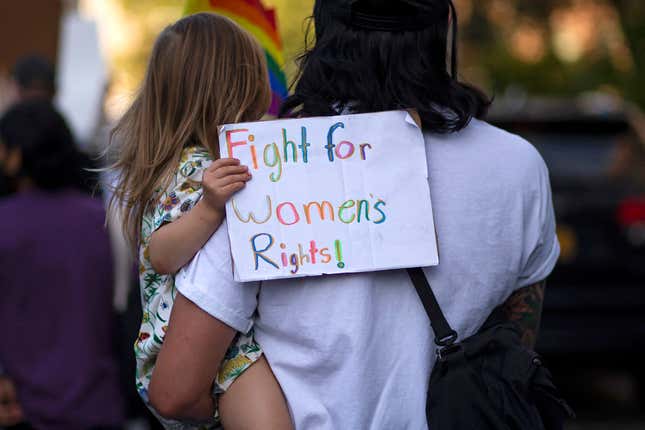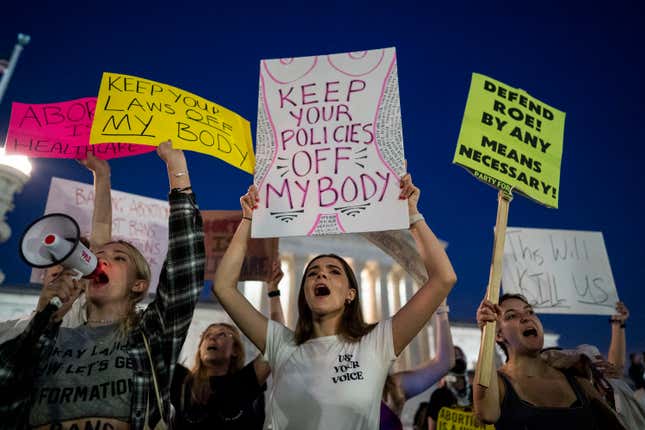Meet Republicans’ New Boogeyman: So-Called ‘Abortion Trafficking’
Restrictions on abortion travel are simply meant to stop people from red states from crossing into blue states to access care safely and legally.
AbortionPolitics

For years now, Kiki Council, an attorney in Colorado, has helped minors obtain judicial bypass to get abortion care. Council, who works as legal counsel for pro bono initiatives at the Lawyering Project, has often supported teens traveling out-of-state for the health service without parental consent.
“The minors who can’t tell their parents about their choice are in very precarious, vulnerable positions at home,” Council told Jezebel. “They’re experiencing emotional, verbal, or physical abuse. They’re living with parents or guardians who are extremely religious, or have extreme views that make them feel like they can’t safely share that choice with them.”
Under an Idaho bill that passed out of the legislature last week and sent to Gov. Brad Little’s (R) desk Thursday, Council’s work would be recognized as “abortion trafficking” and amount to a felony punishable with up to five years in prison. For years, the anti-abortion movement claimed its goal was to leave abortion up to individual states— but Idaho’s HB242 sets the stage for “abortion trafficking” to become the anti-abortion movement’s next boogeyman under the pretense of caring about children. In tandem with their push to confer personhood on embryos, state lawmakers will likely push this fear-mongering narrative until more states adopt legislation like HB242.
Idaho state Rep. Barbara Ehardt (R) introduced HB242 earlier this year, and Little is expected to sign it. It would be enforced by the state’s anti-abortion attorney general, Raúl Labrador (R), if enacted.
The bill prohibits minors from traveling out-of-state to circumvent the state’s abortion ban, which took effect shortly after the fall of Roe v. Wade and bans abortion in nearly all cases. Adults who “conceal an abortion from the parents or guardians of a pregnant, unemancipated minor,” or do anything to help a minor get an abortion, would be guilty of “the crime of abortion trafficking.” This would implicate advocates like Council, or abortion funds that exist to bridge cost and travel-related barriers to abortion.
-

-

-

-

-

-

-

-

-

-

-

-

-

-

-

-

-

-

-

-

-

-

-

-

-

-

-

-

-

-

-

-

-

-

-

-

-

-

-

-










































